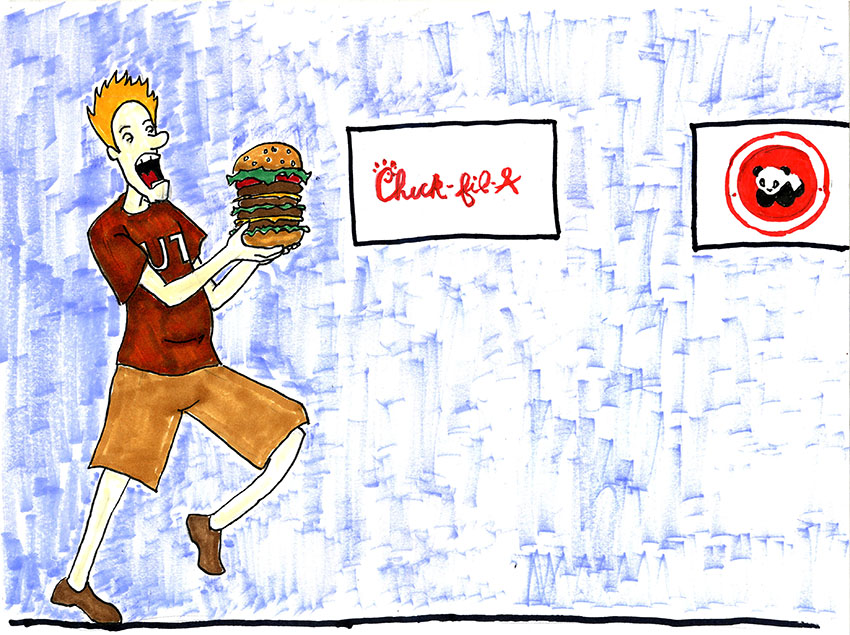I’m a freshman and am terrified of falling victim to the Freshman 15. My mom, friends and online college bloggers have warned me about the inevitable weight gain. Is there anything I can do to prevent putting on pounds? – Fearful Fish
Don’t fret, Fearful Fish — the Freshman 15 is a bit of an exaggeration
The average weight gain by freshman university students is around 3.86 pounds, according to the journal Physiology and Behavior. But if you’re looking to avoid any kind of upward turn of the scale, I have some tips for you.
If you are an upperclassman, don’t check out just yet. This article is for you, too. The average student gains 11 pounds during their entire college tenure, according to a report published in Appetite. Keep reading to combat the stats.
Let’s start with the more obvious: Dining halls provide limitless meal options and, unfortunately, limitless portion sizes as well. Focus on filling your plate with nutrient-dense foods. Pick the grilled chicken over the fried, something green and leafy over a buttery side, or whole-grain roll over white. Extra brownie points if you save the brownies and other sweet treats for special occasions.
A new school means a new environment, which means new food and beverage options. Fast food is accessible at all hours (who hasn’t had pancakes at 2 a.m.?) and it is during college years when most become old enough to legally consume alcohol. Drink in moderation — this means up to one drink per day for women and up to two for men, according to the 2015–20 Dietary Guidelines. Remember that alcohol is denser calorie-wise than carbohydrates and protein (seven calories per gram rather than four), and sugary sodas and juices used as mixers add even more calories.
With all this newness, it may be beneficial to make a schedule. A report published by Appetite cited boredom as a trigger for emotional eating. In high school, your entire 8-to-4 day was dictated for you, whereas in college, you might have hours of free time. Fill your day with clubs, volunteering and intramural sports; this will keep the boredom-eating at bay. Fine-tune time management skills so that day hours are spent studying and completing homework rather than having to burn the midnight oil at the PCL — which is a great segue into my next tip:
Limit the all-nighters. The National Sleep Foundation recommends seven to nine hours of sleep every night for college-aged students. Lack of sleep obviously produces fatigue, and who wants to hit the gym while struggling to stay awake? Not getting enough shut-eye also lowers self-control, which leads to mindless snacking. Additionally, if sleep schedules are thrown out of whack, so are appetite and hunger hormones. When researchers compared people who slept four hours per night to those who slept closer to 10 hours, the people with less sleep reported higher levels of hunger and appetite, according to Obesity Reviews. Further investigation showed that these individuals craved high-fat and high-carbohydrate foods, also known as junk food.
These are just a few ways to avoid any kind of freshman (or sophomore/junior/senior) weight gain. The rule of thumb is to enjoy a variety of foods in moderation. By doing this, the college weight gain doesn’t have to be a rite of passage.















